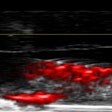
It is unclear whether receiving dental treatment before cardiac valve surgery improves patient outcomes, according to a systematic review recently published in the Journal of the American Dental Association.
The researchers wanted to determine if performing dental procedures before cardiac valve surgery or left ventricular assist device implantation affected postsurgical outcomes. Outcomes included all-cause mortality, rates of infective endocarditis and other infections, and lengths of hospital stay.
The review included six studies, and they all used an observational study design, but the follow-up varied from three months to 16 years, the authors reported (JADA, August 19, 2019).
The review was triggered by the ADA's House of Delegates adoption of resolution 86H-2016, which instructed the association to address improving patients' dental health before specific surgeries, medical procedures, and treatment. The association paid for the analysis.
The review authors could not state whether having dental work before cardiac valve surgery or the device implantation procedure positively or negatively affected patient outcomes. This was because of a lack of adjusted analysis for confounding factors, such as age, smoking history, and oral health status, as well as imprecision in the studies, they noted.
Researchers also stated that they were unaware of any other systematic reviews conducted for these specific procedures, so their findings had no exact comparison.
However, they acknowledged that one broader review looked at the effects of presurgical dental treatment before all types of cardiovascular surgeries. Like the present analysis, this more extensive study found that dental treatment before cardiovascular surgery had an unclear effect on patient outcomes.
The authors wondered if it was possible for studies to realistically and sufficiently analyze for infective endocarditis, a life-threatening disease that afffects more than just cardiac valve surgery patients.
They recommended using this comprehensive analysis to assist with treatment planning.
"Given the uncertainty of the evidence, a team that includes dental, medical, and surgical care professionals should weigh additional, case-specific factors before proceeding with presurgical dental treatment and determine how they want to treat individual patients going forward until more definitive studies are published," wrote the authors, led by Peter Lockhart, DDS, of department of oral medicine of the Carolinas Medical Center in Charlotte, NC.



















